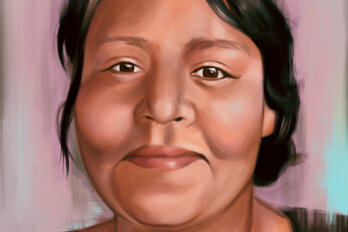Send us a letter, email, or tweet, or post on our Facebook page.
Barriers to Entry
Kelly Toughill’s story “How Immigration Really Works” (May) highlights Canada’s increasingly decentralized immigrant-selection system—one of the most flexible in the world, nimble in adapting to changing economies and demographics. But, with little parliamentary oversight, that flexibility and nimbleness ride on the backs of the very immigrants we attract. Even as an immigration reporter for the Toronto Star, I have lost track of the myriad pathways to permanent residence. In a system so complex, it becomes much easier for those with precarious status to fall through the cracks while pursuing citizenship. Canadian immigration is largely driven by economics, and decentralization is arguably just about matching immigrants with jobs that need to be filled. Immigration is always about Canada; it’s never about the immigrants. And, until we have robust checks and balances on our selection process, immigrants are the ones who are going to pay the price when something goes wrong.
Nicholas Keung
Toronto, ON
Toughill makes an effective case for the benefits of decentralizing immigration decisions, and she also discusses the many challenges stemming from the Canadian system’s great complexity and lack of uniformity. But, as long as Canada accepts highly skilled immigrants into a country where their foreign credentials for professional positions are discounted, it will continue to perpetuate the deskilling of newcomer labour and the precarity that goes with this. The challenge of integrating foreign credentials has existed for a long time and continues without any solutions in sight.
Stephanie Bangarth
King’s University College, Western University
Cambridge, ON
Reality Check
In her article “How Do We Exit the Post-Truth Era?” (May), Viviane Fairbank dissects the limitations of modern fact-checking as a practice that has gained popularity over the last five years while losing much of its agreed-upon methodology and standards. Conducted properly, fact-checking has wider applications than just correcting misleading political memes or speeches. Reporting on disinformation for Buzzfeed News, I’ve seen first-hand how fact checkers are able to map out networks of disinformers and reconstruct virtual crime scenes to challenge harmful narratives. With these efforts, context is laid bare and we stand a chance of clarifying our polluted information environment.
Jane Lytvynenko
Toronto, ON
Talk Therapy
Reading Lisa Whittington-Hill’s “OCD Is Not a Joke”, I was happy to see obsessive compulsive disorder portrayed as a serious condition. I first noticed my OCD symptoms in highschool. My episodes became more regular after 2019, and last year, I realized my symptoms had worsened because I was taking Singulair asthma medication. In 2020, after users of Singulair sued its manufacturer for failing to warn of potential adverse mental health side effects, the FDA mandated warning labels. Mental health is talked about a lot, but mental illness is still often considered a taboo subject. So let’s talk about it!
Keannia Collins
Sedalia, MO
Body Language
In her essay “Will Beauty Change When the World Comes Back?”, Amanda Scriver hopes the peace she has found with her body in quarantine will persist postpandemic. This resonates with me as I try to remind myself that our bodies map our life histories: I embrace my back and cancer surgery scars—they are badges of my survival. I accept those post-op pounds and try to be grateful for each day. Still, sometimes I want to scream, “I want my pre-surgery body back!”
Sara Esler McNulty
Brampton, ON
Send us a letter, email, or Tweet, or post on our Facebook page.
411 Richmond Street East, Suite B15
Toronto, Ontario, Canada M5A 3S5





